YOUR HOPE
WE KEEP
AbClon seeks to safeguard humanity’shealth through development of new cures.




CAR T-cell (Chimeric Antigen Receptor) therapy is helping usher in the age of
personalized medicine by programming the patients’ own immune cells to target
previously undetected cancerous cells. Used to treat certain blood cancers,
CAR-T cell therapy boasts outstanding treatment efficacy and high specificity.
Further research is ongoing to expand the scope of treatment to solid tumors as well.
NEST (Novel Epitope Screening Technology) platform allows for development of
antibodies targeting unique sites of disease proteins. By targeting previously
unknown sites, these new antibodies exhibit completely different therapeutic
effects compared to conventional antibody treatments.
AffiMab is a platform that combines the advantages of monoclonal antibodies and
Affibody molecules. It allows for agile development of bispecific antibodies that
can maximize therapeutic effects compared to conventional antibody treatments
in refractory diseases.
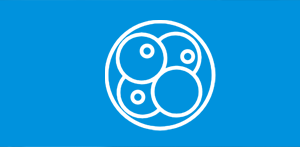
AbClon Issuance of Perpetual CBs and CPSs worth 36 Billion KRW; Biotech-Specialized VC Participates
Five Biotech-Focused VCs Participate: DSC Investment, Paratus Investment, Dongyu Investment, AlphaView Partners, and Winbest Venture Investment The next-generation blood cancer CAR T-cell therapy, 'Nespe-cel ' is highly evaluated for its possibility of accelerated market approval, and the innovative solid tumor therapy, 'AT501 CAR T-cell new therapy', is also highly valued for its clinical and economic potential. The increased feasibility for commercialization of AC101 (HLX22), which was licensed out to Henlius, also contributed to gaining investor confidence. AbClon, an antibody drug development company, announced on the 1st that it has decided to issue 36 billion KRW worth of perpetual convertible bonds (CBs) and convertible preferred stocks (CPSs) through a third-party allotment. The issuance price is 18,223 KRW. The perpetual CBs being issued by AbClon have a 30-year maturity and lack the bondholders' right of redemption, allowing them to be classified as equity for accounting purposes. The 25.2 billion KRW issuance is expected to increase the total capital—similar to an increase in paid-in capital—thereby achieving the effect of strengthening the equity base on the financial statements. The surface interest rate for this CB is 0%, meaning the company is securing interest-free financing. Essentially, investors in this CB are focused on the potential appreciation of AbClon's stock price rather than receiving interest income. Additionally, the non-redeemable CPSs will be issued for 10.8 billion KRW. These CPSs are also treated as equity for accounting purposes, which contributes to the improvement of the financial structure. An AbClon official emphasized, "The issuance of these perpetual CBs and CPSs involves financial instruments recognized as equity for accounting purposes, which has the effect of fundamentally improving the financial structure of our technology-specialized company." The official added, "At a time when the issue related to the legal deficit and equity ratio has become a major concern for biotech firms, this investment will resolve that issue for AbClon." The biotech-specialized VCs that participated in this investment are DSC Investment, Paratus Investment, Dongyu Investment, AlphaView Partners, and Winbest Venture Investment. These investment institutions have been recognized for their expertise in advanced bio-pharmaceuticals, including CAR T-cell therapies, within the domestic bio-healthcare sector. An AbClon official stated, "This investment decision is the result of highly valuing both the possibility of early market approval for the developing next-generation blood cancer CAR T-cell therapy, 'Nespe-cel (AT101),' and the clinical and economic value of the innovative solid tumor therapy, the 'Switchable CAR T-cell therapy (AT501).'" The official added, "In particular, the increased commercialization visibility of AC101 (HLX22), which was licensed out to Henlius—including its progression into global Phase 3 trials and receiving Orphan Drug Designation in the U.S. and Europe—also contributed to gaining investor confidence. Currently, AbClon expects the success in CAR T-cell therapy development to lead to achievements in new drug development based on its bispecific antibody platform technology, 'AffiMab.' AffiMab is a bispecific antibody technology that utilizes Affibodies, which are about 25 times smaller than conventional antibodies. New drugs such as 'AM105' for colorectal cancer and 'AM109' for prostate cancer are under development, and the research for AM109 was supported by the Korea Drug Development Fund (KDDF) Meanwhile, AbClon had previously licensed out the HER2-targeting antibody therapy, 'AC101' (HLX22), to China's Henlius in 2016 and 2018 for a total deal size of 56 million USD. The drug is currently undergoing global Phase 3 clinical trials for gastric cancer. Notably, after receiving Orphan Drug Designation from the U.S. FDA in March 2025, it was also granted the designation by the European Commission (EC) in May, thereby securing Orphan Drug status in both the U.S. and Europe. 2025-10-01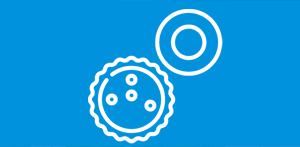
AbClon's next-generation CAR-T therapy, 'Nespe-cel, has been designated as a fast-track advanced biopharmaceutical by the Ministry of Food and Drug Sa…
AbClon's next-generation CAR-T therapy, 'Nespe-cel (AT101),' has been designated as a fast-track advanced biopharmaceutical by the Ministry of Food and Drug Safety (MFDS), the company announced on the 24th. The MFDS granted the designation approximately two months after AbClon applied on July 23rd. The fast-track designation system allows the MFDS to prioritize the review of treatments for life-threatening or severe diseases that lack existing therapies or show significant potential for medical improvement. This designation provides AbClon with several benefits, including the assignment of a dedicated review team, a shortened review period, and the potential for partial exemption from clinical trial data requirements, which can significantly reduce the time needed to obtain product approval. 'Nespe-cel (AT101) is a domestically developed CAR-T therapy with a target of receiving product approval in 2026. It is being developed with support from the Korea Drug Development Fund (KDDF). 2025-09-24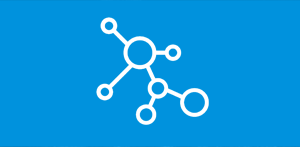
AbClon's Next-Generation CAR-T Therapy 'Nespe-cel' Designated as an Orphan Drug in Development by MFDS - Accelerating Entry into a CAR-T Market Growin…
On September 18, AbClon, a company specializing in antibody-based drugs, announced that its next-generation CAR-T cell therapy, Nespe-cel (AT101), was designated as an orphan drug in development by the Ministry of Food and Drug Safety (MFDS). Nespe-cel (AT101) is a personalized treatment for patients with relapsed or refractory blood cancers. The process involves extracting a patient's T-cells, genetically modifying them with AbClon 's proprietary h1218 antibody to specifically target cancer cells, and then re-infusing them back into the patient. Nespe-cel is attracting attention due to its exceptional therapeutic efficacy. Interim results from a Phase 2 clinical trial showed an objective response rate (ORR) of 94%, a significant improvement over the 52% ORR of existing treatments currently used in Korea. Additionally, the complete response rate (CRR) was 68%, demonstrating a markedly superior outcome compared to the 40% seen with the conventional therapy. The core technological difference of Nespe-cel lies in AbClon's unique antibody and CAR-T technology. Unlike existing global CAR-T therapies that use the murine 'FMC63' antibody, AbClon has applied its self-developed, CD19-specific, humanized antibody, 'h1218'. The use of the h1218 antibody improves the drug's persistence and triggers a more powerful anti-cancer effect, securing a high level of technological competitiveness on the global stage. Orphan drug designation in development by the Ministry of Food and Drug Safety (MFDS) is a system to support the creation of treatments for rare and intractable diseases with fewer than 20,000 patients in Korea. This designation allows significant benefits: The product license validity period is extended from 5 years to 10 years. Administrative advantages, such as simplified data submission, are granted during the application process. The exclusive data protection period for the new drug is extended from the previous 4-6 years to 10 years. These benefits increase development efficiency, secure market exclusivity, and give the company a competitive advantage in commercializing the drug. According to the Korea Biotechnology Industry Organization, the global CAR-T cell therapy market was valued at $3.74 billion in 2023. It is projected to grow at an average annual rate of approximately 40% to reach $29 billion by 2029. Specifically, CD19-targeted therapies held a market share of 74% in 2023, valued at $2.76 billion, and are expected to expand to $22 billion by 2029. 2025-09-19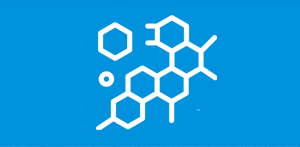
AbClon, HER2 Affibody Switchable CAR-T" U.S. Patent granted… "Moves to take the lead in Solid Tumor CAR-T Market"
AbClon is making a move to dominate the untapped solid tumor CAR-T market, having completed its global patent portfolio, including in the U.S. On the 17th, antibody drug development company AbClon announced that it has received a patent grant decision from the U.S. Patent and Trademark Office (USPTO) for its 'HER2 Affibody-based Switchable CAR-T Technology.' With this, AbClon has secured exclusive technological rights in the world's largest pharmaceutical market, the U.S., following Korea, Canada, China, Japan, and Australia, with final registration also pending in Europe. The newly patented technology is a 'Switchable' CAR-T, designed to activate immune cells targeting HER2-expressing cancer cells only when needed. This next-generation platform addresses the fundamental limitations of existing CAR-T therapies. Currently, all seven FDA-approved CAR-T products are limited to blood cancers. Their T-cell receptors, which recognize cancer cells, are permanently bound, resulting in an 'always-on' state once injected into the body, where they are continuously active. This can lead to severe side effects such as Cytokine Release Syndrome (CRS) and Immune effector Cell-Associated Neurotoxicity Syndrome (ICANS), and even attacks on healthy cells. Furthermore, because they only target a single antigen, their therapeutic effect diminishes if cancer cells develop resistance. AbClon 's proprietary switchable CAR-T platform, 'zCAR-T,' is designed to require an intermediary 'switch molecule' instead of the CAR-T cells directly recognizing cancer cells. Much like an electrical switch, it allows the CAR-T cells to be turned on and off as needed. AbClon has utilized the zCAR-T platform to develop its HER2 affibody-based switchable CAR-T technology, which is the core technology for its first zCAR-T candidate, 'AT501,' currently in preclinical development as a treatment for ovarian cancer. AT501's switch molecule consists of two parts. One side, 'cotinine' (a metabolite of nicotine), binds to the CAR-T cell, while the other side, an 'affibody' (a small protein about 1/25th the size of a regular antibody), binds to cancer cells that express HER2. This acts like a bridge between the cancer cell and the CAR-T cell. The switch molecule can be used to control the activation and proliferation of CAR-T cells and to change and regulate their targets. Additionally, if side effects occur, administration of the switch molecule can be stopped to immediately halt the CAR-T cell activity. The HER2 targeted therapy market was valued at $8.9 billion in 2021 and is growing at an annual rate of 12%. Blockbuster drugs like Herceptin, Perjeta, and Enhertu form a market worth over $12 billion annually. However, most of these are based on monoclonal antibodies or ADCs, and a CAR-T approach is still in its early stages. While several pharmaceutical companies like CARsgen and Adaptimmune Therapeutics are developing solid tumor CAR-T therapies, few possess a specialized switchable platform for HER2, which is drawing market attention to AbClon's differentiated technology. An AbClon official stated, "The U.S. patent registration for our 'HER2 Affibody-based Switchable CAR-T Technology' will be a major catalyst for us to lead the charge in the untapped solid tumor CAR-T market. We have confirmed the potential for our switchable CAR-T platform, 'zCAR-T,' to expand beyond a single therapeutic agent into a platform-based business model, so we will be accelerating licensing agreements and joint development collaborations with multinational pharmaceutical companies." Furthermore, while conventional CAR-T therapies are developed to directly target specific proteins on the surface of cancer cells, requiring a separate CAR-T for each cancer type, AbClon's zCAR-T platform allows for a single 'switchable CAR-T' to be created, with different switch molecules developed for each cancer type. For example, a HER2-targeting switch can be used for HER2-positive breast cancer, and a different target switch can be used for ovarian cancer. Moreover, using multiple switch molecules simultaneously allows for multi-target attacks, which can overcome issues of immune evasion and resistance due to antigen loss in cancer cells. 2025-09-17
AbClon, Expansion of AC101 Global Phase 3 Clinical Trial... Beyond First-Line Treatment for Metastatic Gastric Cancer to Include Breast Cancer
AbClon announced on the 29th that AC101 (Henlius code name HLX22), a new antibody drug licensed to Henlius, is expanding its scope to breast cancer treatment, following that positive expectations on first-line treatment for gastric cancer have increased through global Phase 3 clinical trial. Henlius, in its interim business report on the 25th, announced that HLX22 is showing superior clinical effects compared to current standard treatments. The company is currently expanding a multinational Phase 3 clinical trial (MRCT) for the treatment of first-line HER2-positive gastric cancer (G/GEJ) and has expressed great anticipation. HLX22 is an antibody therapy that targets a specific part of the HER2 protein. By attacking a different binding site from existing treatments, it enhances cancer cell death by increasing the internalization of the HER2 protein on the surface of cancer cells by 40-80%. According to Henlius, the combination therapy of HLX22 and trastuzumab significantly improved progression-free survival (PFS) and overall survival (OS) in gastric cancer patients. At the median follow-up period of 28.5 months, the drug showed superior results in progression-free survival, overall survival, and duration of response compared to existing standard treatments. This is a significant advancement compared to existing treatments, which only showed 6.7 months for progression-free survival, 13.8 months for overall survival, and 6.9 months for duration of response. In the Phase 2 clinical trial, the HLX22-treated group showed reduction in the risk of disease progression or death by approximately 80%, with almost no reported side effects. Phase 3 clinical trials for HLX22 are underway in the U.S., Europe, Japan, China, and Korea. The HLX22-GC301 study is being led by top leading clinicians in the global gastric cancer field. Professor Shen Lin of Beijing Cancer Hospital, Professor Jaffer A. Ajani of MD Anderson Cancer Center, and Professor Ken Kato of the National Cancer Center of Japan are participating as principal investigators. This year, HLX22 received Orphan Drug Designation (ODD) in the U.S. and Europe. A Phase 2 clinical trial is currently underway for breast cancer with low HER2 expression (HER2-low/HR+), which will expand the indication from gastric cancer to breast cancer. The business report states that it could be launched overseas within three years from now, signaling the start of its global commercialization. AbClon shall secure revenue through development stage milestones and commercialization royalties for HLX22. Henlius has set a sales target of $10 billion for HLX22. An AbClon official said, "According to the Henlius business report for the first half of this year, HLX22 has shown excellent global clinical results in gastric cancer and is very close to commercialization after receiving Orphan Drug Designation in the U.S. and Europe." They added, "Commercialization may happen faster than expected, and the expanded application to breast cancer will be a major turning point." 2025-08-29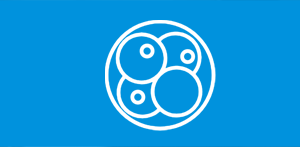
Henlius Featured at the 2025 Evercore China Biotech Summit
Henlius Featured at the 2025 Evercore China Biotech Summithttps://www.henlius.com/en/NewsDetails-5425-26.html 2025-08-29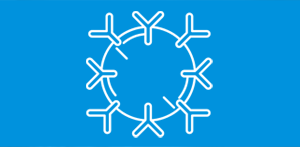
AbClon, Next-Generation Blood Cancer CAR-T Cell Therapy 'Nespe-cel' Applies for Designation to Fast-Track processing
AbClon announced on the 24th that it has applied to the Ministry of Food and Drug Safety (MFDS) for the designation to fast-track processing of its next-generation CAR-T cell therapy, 'Nespe-cel (AT101)', as an advanced biological product. The application was based on the objective response rate (ORR) and complete response rate (CRR) confirmed in the interim analysis of its Phase 2 clinical trial. Nespe-cel showed an ORR of 94% and a CRR of 68% in the interim results of the Phase 2 clinical trial. These rates are 10 to 40 percentage points higher than the approval cases of global CAR-T cell therapies such as Novartis' Kymriah and Gilead's Yescarta. The company stated, "The interim results prove AT101’s excellent efficacy even in relapsed/refractory blood cancer groups who did not respond to existing treatments," adding, "This is very significant because most of these patients were in difficult situations with no further treatment options in clinical practices." Unlike global CAR-T therapies that use existing FMC63-based antibodies, Nespe-cel enhances efficacy and persistence by applying AbClon's independently developed CD19-specific humanized antibody. Furthermore, by optimizing antibody affinity, pharmacokinetic efficiency has also improved. The related research results have been published in the international journal, Molecular Cancer. The Designation to Fast-Track processing is a system in which the MFDS prioritizes the review of advanced biological products for treatments of severe life-threatening diseases for which there are no existing treatments or there is a significant achievement of medical improvement. If designated, companies receive benefits such as dedicated officials for review, shortened review periods, and partial exemption from clinical trial data, which can dramatically shorten the time until product approval. AbClon aims to obtain domestic product approval in the second half of next year by actively utilizing the customized review and pre-consultation systems. Overseas commercialization is also accelerating. In Turkey, the biopharmaceutical company TCT is in the process of process development for local commercialization after receiving Nespe-cel technology transfer from AbClon. In Korea, Chong Kun Dang has secured priority for commercialization in Korea and continues its partnership. Lee Yoon, Director of AbClon's Clinical Research Institute, stated, "Nespe-cel is showing groundbreaking results, presenting a new treatment option for critically ill patients who have failed existing treatments." He added, "Through priority review designation, we will provide treatment opportunities to patients more quickly." Meanwhile, AbClon is also accelerating the development of a switchable CAR-T (zCAR-T) platform targeting solid tumors for future indication expansion. Through this, the company is pursuing both securing technological leadership in the domestic and international immune cell therapy market and global commercialization. 2025-07-24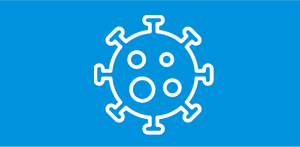
AbClon, “Henlius’s AC101 Global Phase 3 Clinical Trial on Track… First Patient Dosed in the US for HER2-Positive Gastric Cancer"_ First patient dosing…
Seoul, South Korea – July 15 – AbClon announced today that its Licensee, Henlius has completed the first patient dosing in the United States for the global Phase 3 clinical trial (HLX22-GC-301) of an innovative anti-HER2 monoclonal antibody, AC101 (Henlius code name HLX22). This multi-center trial compares AC101 with the current first-line standard care (trastuzumab + chemotherapy ± pembrolizumab). The trial is jointly led by Professor Lin Shen of Beijing Cancer Hospital and Professor Zafard Azani of MD Anderson Cancer Center in the United States. The first patient dosing has already been completed in China, Japan, Australia, and South Korea, and Investigational New Drug (IND) approvals have been obtained in numerous other countries, including Chile, Brazil, and Argentina. AC101 has previously been granted Orphan Drug Designation (ODD) by the U.S. FDA and the European Commission (EC) for the treatment of gastric cancer. To date, no dual HER2 blockade therapy for HER2-positive gastric cancer has received commercial approval worldwide. AC101 is designed to bind to the epitope in HER2 extracellular domain IV, a different binding site from trastuzumab, allowing both antibodies to act simultaneously on HER2 homodimers and HER2-EGFR heterodimers. This mechanism increases the intracellular internalization of the HER2 protein by 40-80%. Interim results from the Phase 2 clinical trial (HLX22-GC-201) were presented at ASCO this year and continue to show excellent efficacy even beyond two years of median follow-up. The double-blind, randomized, controlled, multi-center Phase 3 study (HLX22-GC-301) compares HLX22 (15 mg/kg) + trastuzumab + chemotherapy with placebo + trastuzumab + chemotherapy (± pembrolizumab) in a 1:1 ratio for patients with HER2-positive locally advanced or metastatic gastroesophageal junction/gastric cancer. In addition to gastric cancer, Henlius is also conducting a clinical trial combining Enhertu and AC101 as a second-line treatment for HER2-low, hormone receptor-positive locally advanced and metastatic breast cancer. The Phase 2 trial (HLX22-BC201) recently initiated in China, with the first patient dosed. A company official stated, "Gastric cancer is a major global health issue, with approximately 1 million new patients and 660,000 deaths worldwide each year. We expect that accelerating the global development of AC101 will provide more effective HER2-targeted treatment options for patients worldwide." Meanwhile, gastric cancer is typically diagnosed at an advanced stage, with a five-year relative survival rate of only 6%. Despite recent advancements in anti-HER2 therapies and immune checkpoint inhibitors (anti-PD-1/PD-L1), significant variations in patient response to treatment exist due to high molecular heterogeneity. In particular, immunotherapy has shown limited efficacy only in PD-L1 positive patient groups, highlighting the urgent need for new treatment options across the spectrum of HER2-positive gastric cancer. 2025-07-15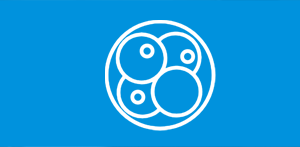
‘Nespe-cel’ of AbClon, showed Global Competitiveness in the topline results from interim analysis of Phase 2 Clinical Trial
AbClon announced on the 1st that it has received the interim topline results from the Phase 2 clinical trial of its next-generation anti-CD19 Chimeric Antigen Receptor T-cell (CAR-T) therapy, Nespe-cel (AT101). The topline results, received from the independent Data Monitoring Committee (IDMC), represent the independent evaluation of Nespe-cel's anticancer treatment efficacy. The company stated that the results are a significant milestone achievement, proving AbClon's competitiveness in the global CAR-T therapy market. In the interim analysis of the Phase 2 clinical trial, Nespe-cel achieved an objective response rate (ORR) of 94% and a complete response rate (CRR) of 68%. These values demonstrate superior anticancer efficacy compared to globally approved therapies like Kymriah and Yescarta. Unlike typical independent evaluations, which often yield lower results than investigator’s assessments, Nespe-cel 's independent evaluation on image data were consistent with investigator readings, further clearly proving its efficacy. Based on the tumor evaluation and safety analysis results, the IDMC assessed that Nespe-cel met the criteria for statistical superiority and showed excellent drug efficacy. Adverse events of special interest (AESI), such as cytokine release syndrome (CRS) and neurotoxicity, commonly observed side effects in CAR-T therapies, occurred within the expected timeframe and were deemed manageable, indicating positive safety results. An AbClon official stated, "Based on the IDMC's comments, we plan to apply for expedited review designation in the near future and enter into the accelerated drug approval process for advanced biopharmaceuticals." They added, "We will continue to continue the Phase 2 clinical trial to prove not only short-term treatment effects but also long-term survival effects, faithfully implementing the IDMC's recommendations." Unlike existing CAR-T therapies, Nespe-cel incorporates an antibody developed with AbClon's proprietary NEST technology. Its unique mechanism of action and excellent pharmacokinetic properties have shown a significant correlation with blood cancer treatment efficacy, which was published in the prestigious international academic journal Molecular Cancer. AbClon believes these interim topline results mark a pivotal moment for Nespe-cel to establish itself as a globally competitive CAR-T therapy. 2025-07-01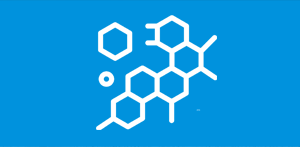
AbClon, AC101 Improves HER2-Positive Gastric Cancer Progression-Free Survival More Than 3-Fold...ASCO Presentation – Global First-Line Treatment Solid…
AbClon announced on the 4th that AC101 (Henlius code name HLX22), which was licensed to Henlius, showed long-term efficacy exceeding two years after administration in a Phase 2 clinical trial for patients with HER2-positive advanced gastric cancer. These results were presented at the American Society of Clinical Oncology (ASCO) annual meeting, which took place in Chicago, USA, from May 29th to early this month. According to the latest results from the HLX22-GC-201 Phase 2 clinical trial, long-term treatment effects were stably maintained in the patient group that received AC101 in combination with other drugs. This achievement surpasses previously reported results, once again proving AC101's excellent therapeutic efficacy. The HLX22-GC-301 Phase 3 clinical trial is also underway in the United States, Europe, Japan, South Korea, China, South America, and Australia. To date, no similar dual HER2 blockade therapy for HER2-positive gastric cancer treatment has received marketing authorization worldwide. Gastric cancer is a fatal disease with nearly 1 million new patients annually worldwide and over 660,000 deaths. Particularly, the 5-year survival rate for advanced gastric cancer is only 6%, highlighting a critical need for innovative treatments that surpass existing therapies. According to the ASCO presentation, follow-up over two years showed that the AC101 combination group demonstrated an excellent effect, reducing the risk of disease progression by 80% compared to the control group. The median progression-free survival (PFS) in the AC101 combination group has not yet been reached, while it was 8.3 months in the control group. The 12-month and 24-month progression-free survival (PFS) rates were 77.1% and 54.8%, respectively, compared to 40.8% and 17.5% in the control group, indicating a more than threefold increase in survival rate after two years. The objective response rate (ORR) was 87.1% for the AC101 combination group and 80.6% for the control group. The duration of response (DOR) has not reached the median in the combination group, while it was 9.7 months in the control group. Overall survival (OS) has also not reached the median in the combination group, while it was 16.4 months in the control group, demonstrating AC101's excellent survival-prolonging effect. Due to these innovative therapeutic effects, AC101 has simultaneously received Orphan Drug Designation (ODD) for gastric cancer treatment from the U.S. Food and Drug Administration (FDA) and European regulatory authorities. Furthermore, it has met the criteria for accelerated approval from the U.S. FDA, and received positive evaluations from major global regulatory bodies, including conditional marketing authorization and priority medicine designation from the European Medicines Agency (EMA), and innovative drug designation from China's National Medical Products Administration (NMPA). At ASCO, the design and synopsis of the HLX22-GC-301 Phase 3 clinical trial were also introduced. The trial is being conducted into 550 HER2-positive gastric cancer patients worldwide, with participation from leading medical institutions such as MD Anderson Cancer Center, Japan's National Cancer Center, and Peking University Cancer Hospital. The study is designed to compare the efficacy and safety between AC101 + trastuzumab + XELOX combination therapy and trastuzumab + XELOX ± pembrolizumab combination therapy. Additionally, precise analysis based on HER2 expression levels, region (Asia, Europe, North America), and PD-L1 expression levels (CPS) will be performed, aiming to establish a new standard treatment for HER2-positive gastric cancer. A Phase 3 clinical trial for AC101 is also underway in South Korea. It received clinical approval from the Ministry of Food and Drug Safety on April 16th and involves 10 domestic hospitals as part of the global multi-national clinical trial. Some patients will directly receive AC101 in South Korea. Clinical trials for expanding AC101's indications to other cancer types are also actively progressing. A Phase 2 clinical trial combining AC101 with trastuzumab Deruxtecan (T-DXd) for HER2-low expression and hormone receptor (HR)-positive locally advanced or metastatic breast cancer patients is underway in China, with the first patient having completed treatment. An AbClon official stated, "The ASCO presentation will be a new turning point for AC101 in the treatment of HER2-positive gastric cancer. We plan to accelerate AC101's global clinical development and commercialization to provide effective and affordable treatment options to patients worldwide." They added, "Henlius expects AC101's peak annual sales target to be $10 billion, and AbClon anticipates securing over 700 billion won in annual royalties. Given the recent pace of progress, we believe we are approaching the commercialization stage through conditional marketing authorization by country." 2025-06-04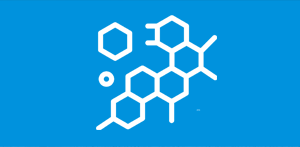
AbClon, Innovative Antibody Therapy AC101 Received Orphan Drug Designation for Gastric Cancer in Europe, Following US Designation
AbClon announced on May 27 that AC101 (Henlius code name HLX22), an antibody therapy out-licensed to China's Henlius Biotech, has been granted Orphan Drug Designation (ODD) by the European Commission (EC) for the treatment of gastric cancer. With this designation, HLX22 has become the world's first anti-HER2 targeted therapy to obtain ODD from both the U.S. Food and Drug Administration (FDA) in March and the European EC in May. This ODD is a significant step towards faster commercialization, establishing a strong basis for an innovative treatment expected to show superior efficacy in gastric cancer compared to existing therapies. The ODD was granted based on a positive assessment from the Committee for Orphan Medicinal Products (COMP) under the European Medicines Agency (EMA). The EC determined that HLX22 meets the requirements for an orphan medicinal product, targeting a life-threatening or severely debilitating condition. As a result, HLX22 will secure various incentives throughout its research, development, and approval processes. These include: Assistance with clinical trial design Centralized marketing authorization procedures 10 years of market exclusivity protection after marketing approval Reduced regulatory fees Globally, gastric cancer remains a serious public health challenge. According to GLOBOCAN 2022 by the International Agency for Research on Cancer, there were approximately 1 million new gastric cancer diagnoses and over 660,000 deaths in 2022. The majority of patients are diagnosed at an advanced stage, leading to a poor prognosis. Specifically, HER2-positive gastric cancer accounts for 12-23% of all gastric cancer patients and is reported to have a worse prognosis than HER2-negative patients. The current standard first-line treatment for HER2-positive metastatic gastric cancer involves a combination of trastuzumab and chemotherapy, occasionally supplemented with immunotherapy. However, the therapeutic outcomes remain limited, indicating a significant need for improvement. AbClon explains that HLX22 is drawing attention as a new therapeutic alternative. HLX22 is being developed as a first-line treatment for patients with HER2-positive metastatic gastric cancer and gastroesophageal junction (GC/GEJC) cancer. A global Phase 3 clinical trial (HLX22-GC-301), combining HLX22 with trastuzumab and chemotherapy, is currently underway with active global development. This Phase 3 trial has received Investigational New Drug (IND) approvals in key countries, including China, the U.S., Japan, Australia, South Korea, and Germany. To date, the first patients have already been dosed in China, Japan, and Australia. According to Henlius's published Phase 2 clinical data on HLX22 in combination with the trastuzumab biosimilar Hanquyou® (HERCESSI™/Zercepac®), a significant improvement in survival rates and anti-tumor efficacy was observed compared to existing treatments, while maintaining a favorable safety profile. The Phase 3 clinical trial design and subsequent updates are also scheduled to be presented at this week's ASCO 2025 annual meeting. Beyond gastric cancer, HLX22 is also being explored for other cancer types with significantly larger patient populations. Currently, HLX22 is undergoing a Phase 2 clinical trial in China, in combination with trastuzumab deruxtecan (T-DXd), for patients with HER2-low and hormone receptor (HR)-positive locally advanced or metastatic breast cancer. The first patient has already been dosed in this trial as well. AbClon stated, "The European ODD designation will further accelerate HLX22's global clinical development and commercialization." They added that "Henlius projects HLX22's peak annual sales to reach $10 billion, which would generate over 700 billion Korean Won in royalties for AbClon." 2025-05-27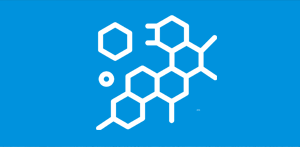
AbClon, Chong Kun Dang: New Share Issuance and Payment Completion for Strategic Investment
AbClon Inc. (CEO Lee Jong-Seo), an antibody-based drug development company, announced today that the payment for the third-party allocated capital increase, in which Chong Kun Dang (CEO Kim Young-Joo) participated, has been completed. The total payment amounted to KRW 12.2 billion, through which Chong Kun Dang secured 1.4 million common shares of AbClon, becoming its second-largest single shareholder with a 7.34% stake. This investment is part of the strategic equity investment, joint research and development partnership agreement signed on May 9th. Through this agreement, Chong Kun Dang has secured exclusive domestic sales priority for AbClon's CAR-T cell therapy, Nespe-cel (AT101). The two companies plan to expand their joint development scope to include bispecific antibodies and immuno-oncology drugs in the future, and they are currently forming a joint development council for this purpose. AbClon plans to concentrate the newly secured funds on clinical trials and research and development (R&D) for its core pipelines, including Nespe-cel. With the completion of the payment, AbClon has secured both financial stability and R&D momentum. "The strategic partnership with Chong Kun Dang is more than just an investment; it's a testament to AbClon's growth potential and technological prowess in the market," said an AbClon official. "We will use this as an opportunity to resolve the risk of being designated as an administrative issue by meeting the sales criteria within the year and improving our financial structure, ultimately taking a leap forward as a global biotech company." 2025-05-19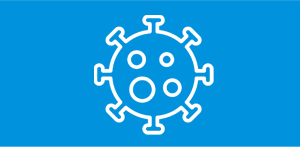
AbClon, Nespe-cel Lymphoma Clinical Trial Shows 94% ORR... Phase 2 Interim Results Presented at European Hematology Association Meeting
AbClon announced on the 16th that the interim results of its Phase 2 clinical trial of CAR-T (Chimeric Antigen Receptor T-cell) therapy 'Nespe-cel (AT101)' will be presented at the European Hematology Association (EHA) annual meeting. Professor Deok-Hyeon Yoon of Asan Medical Center in Seoul, the principal investigator of the Phase 2 trial, will be the corresponding author. A total of seven institutions participating in the ongoing Phase 2 trial, including Asan Medical Center, Ulsan University Hospital, Ajou University Hospital, Dong-A University Hospital, Seoul National University Hospital, Samsung Medical Center, and Yeouido St. Mary's Hospital, are listed as authors. EHA, which will be held in Milan, Italy from June 12th to 15th, is considered one of the two most prestigious academic conferences in the field of hematologic malignancies, along with the American Society of Hematology (ASH). Nespe-cel, a next-generation anti-CD19 CAR-T therapy, is currently undergoing a Phase 2 clinical trial in South Korea for patients with relapsed/refractory diffuse large B-cell lymphoma (DLBCL). Unlike existing CAR-T therapies, Nespe-cel utilizes AbClon's proprietary humanized antibody h1218, targeting the membrane-proximal region of the CD19 antigen, which results in rapid binding and dissociation kinetics. The abstract being released presents the results of a multi-center Phase 2 trial evaluating the efficacy and safety of Nespe-cel. The analysis included 32 evaluable patients out of 35 who received Nespe-cel. The objective response rate (ORR), which signifies the reduction of cancer lesions beyond a predefined criterion, was 94%, and the complete response rate (CRR), indicating the disappearance of all lesions, was 63%. These results are remarkable when compared to the Phase 2 trial outcomes of existing treatments such as Kymriah (ORR 50%, CRR 32%) and Yescarta (ORR 72%, CRR 51%). This presentation reflects the evaluation by clinical investigators, and the presentation at the conference will also include the latest treatment efficacy and safety data obtained since the abstract submission. An AbClon official stated, "Based on its very high ORR, Nespe-cel is expected to demonstrate potent anti-tumor effects even in high-risk patient groups who have not responded to existing CAR-T therapies." They added, "The correlation between 'Flying Kiss,' Nespe-cel's unique mechanism of action published in an international journal, and pharmacokinetic (PK) markers supports its therapeutic efficacy." The official commented, "The ongoing Phase 2 trial is also evaluating long-term survival rates and strategies for managing side effects. Based on the results of the independent data monitoring committee, which are expected soon, we plan to apply for Breakthrough Therapy designation to the Ministry of Food and Drug Safety in early July to expedite the marketing authorization process." Separately, the latest Phase 2 results and the progress of the Phase 3 trial of AC101 (Henlius code name HLX22), which AbClon licensed out to Henlius, will also be presented at the American Society of Clinical Oncology (ASCO) annual meeting held in Chicago, USA, from May 30th to June 3rd. 2025-05-16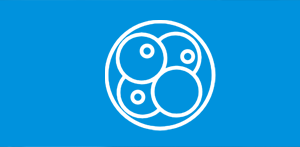
AbClon, The CAR-T cell therapy AT101 'Nespe-cel' has been officially recognized with an International Nonproprietary Name (INN), signaling a full-fled…
AbClon announced on the 2nd that its CAR-T (Chimeric Antigen Receptor T-cell) therapy AT101 has been approved by the World Health Organization (WHO) with the International Nonproprietary Name (INN) 'Nespecabtagene autoleucel’ (Nespe-cel). This signifies the official registration of the therapeutics and 'Nespe-cel' will be used as the official name when AT101 is commercialized in the global market in the future. The International Nonproprietary Name is officially approved by the WHO for specific ingredients or substances to prevent misuse of medicines and to enhance information delivery and ease of use. This name is utilized as a unique identifier in the approval processes and commercialization stages of each country. 'Nespe-cel' embodies the meaning of a CAR-T therapy derived from AbClon's proprietary antibody platform technology 'NEST (Novel Epitope-Screening Technique)'. AbClon is currently conducting a Phase 2 clinical trial in South Korea for Nespe-cel in patients with diffuse large B-cell lymphoma (DLBCL) across seven institutions, with research funding of 7 billion KRW supported by the Korea Drug Development Fund. DLBCL accounts for approximately 50% of non-Hodgkin's lymphoma (NHL). Following an interim analysis of the clinical trial results, the company plans to apply for accelerated approval in June and is also establishing strategies for domestic commercialization. Recently, AbClon announced the initiation of clinical strategies to expand the treatment to patient groups with follicular lymphoma (FL) and marginal zone lymphoma (MZL), which account for approximately 30% of NHL. To strengthen the competitiveness of its CAR-T therapy in the global market, AbClon is pursuing the grant of an independent patent in overseas countries. As a result of this effort, the company signed an agreement on April 28th with TCT Health Technology (TCT) in Türkiye (formerly Turkey) for the commercialization of Nespe-cel in Türkiye, aiming to accelerate its entry into the European and Middle Eastern markets. Through this collaboration, AbClon plans to establish clinical and production infrastructure for Nespe-cel in Türkiye and pursue the approval process for blood cancer treatment. Given the recent active support of the Turkish government for the advanced biopharmaceutical industry, the collaboration between AbClon and TCT is expected to create positive synergy. Following education and production preparation, the first patient is expected to receive Nespe-cel treatment in 2026. An official from AbClon stated, "The technology transfer agreement to TCT is a significant milestone for entering into the European and Middle Eastern markets, leveraging Türkiye as a hub," and added, "We are simultaneously pursuing technology transfer globally and country-specific strategies as well." Meanwhile, TCT is building a CAR-T therapy manufacturing facility in collaboration with global company Cytiva. Through this, they plan to establish the production system for Nespe-cel win near future. Support from the Turkish government is also expected to be a crucial foundation for the rapid and stable production of Nespe-cel. End. 2025-05-02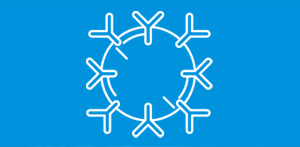
AbClon, Henlius, Expectation for AC101 as a Global Blockbuster: Emphasizing a $10 Billion Annual Market "
AbClon announced on the 28th that its Chinese partner, Henlius successfully held ‘2025 Global R&D Day’ event under the slogan of "Collaborate to Create." The event was attended by Henlius key executives, academic experts, and multinational investors, who shared the latest research achievements, strategic visions, and the current status of advanced technology and therapeutic development. At the event, Henlius presented AC101 (Henlius code name HLX22) as a core innovative pipeline and emphasized its differentiated mechanism of action and clinical data. During the presentation by Jason Zhu, CEO of Henlius, he stated that HLX22 has high potential to expand as a pan-tumor therapy covering a broad range of solid tumors, including HER2-positive gastric and breast cancers. He expressed confidence in developing it into a blockbuster drug, setting a future global market size of over $10 billion (approximately 14 trillion KRW) annually. Henlius is accelerating its global growth strategy centered on HLX22 by strengthening its development and commercialization capabilities in major markets such as the United States, China, and Japan. HLX22 is a novel monoclonal antibody being clinically developed as a first-line treatment for HER2-positive metastatic gastric cancer, characterized by its binding to a different epitope compared to trastuzumab. Notably, gastric and gastroesophageal junction (G∙GEJ) cancer occurs in approximately 1 million cases annually, ranking as the fifth most common cancer worldwide. Among these, HER2-positive patients, accounting for about 12-23%, have a relatively poor prognosis. Currently, HLX22 has entered into a global Phase 3 clinical trial (HLX22-GC301) as a first-line treatment in combination with trastuzumab and XELOX chemotherapy. The randomized, double-blind study is being conducted up to 550 patients across Asia, Europe, and North America. Earlier Phase 2 clinical trial (HLX22-GC201) results showed that the progression-free survival (PFS) in the combination therapy group was significantly longer compared to the control group, with a tumor response rate reaching 87.1% and demonstrating favorable safety. Particularly encouraging is the more significant response observed in the Asian patient population, where the efficacy of pembrolizumab is limited, raising high expectations for HLX22. The market impact is also expected to be substantial, given the potential for indication expansion to HER2-expressing solid tumors beyond gastric cancer, such as breast, lung, and pancreatic cancers. The interim results of the global Phase 3 trial of HLX22 are scheduled to be presented at the American Society of Clinical Oncology (ASCO) in 2025. A representative from AbClon stated, "As the company holding the original technology for HLX22, we anticipate securing both high technical value and revenue potential along with the global clinical progress of this product. We will continue to strengthen global partnerships and expand our position in the antibody therapeutics market." End. 2025-04-28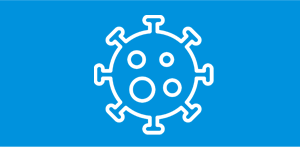
AbClon, AC101, First Patient Dosed in Phase 2 Clinical Trial of Enhertu Combination Therapy for HER2-Low Breast Cancer
AbClon announced on the 18th of April that the first patient in China has been dosed in a Phase 2 clinical trial evaluating 'AC101' in combination with Enhertu for the treatment of HER2-low, hormone receptor (HR)-positive, locally advanced or metastatic breast cancer. The company stated that this trial shall expand the treatment scope of AC101 to the entire breast cancer area from the currently proved HER2-positive gastric cancer field, and provide new treatment options for a broader group of cancer patients. According to GLOBOCAN, a cancer data research platform, breast cancer is the second most frequently diagnosed cancer worldwide, with approximate 2.3 million new cases diagnosed in 2022. HER2-low breast cancer accounts for 45-55% of all breast cancer cases, but currently lacks targeted therapies, relying mainly on endocrine therapy or chemotherapy. Although Enhertu has recently been approved, there is still a high demand for safe and effective treatments. The Phase 3 clinical trial (AC101-GC-301) of AC101 in combination with trastuzumab and chemotherapy for gastric cancer patients has been approved in major countries including China, the United States, Japan, and Australia. The first patient has been dosed along with IND approvals in major countries, and the U.S. Food and Drug Administration (FDA) granted Orphan Drug Designation (ODD) for the treatment of gastric cancer last month. Based on the significant results in HER2-positive gastric cancer, AC101 is expanding its treatment area to various HER2-expressing solid tumors. Last year, Phase 2 clinical trials of AC101 in combination with trastuzumab and chemotherapy, or in combination with Enhertu, were approved in China and are currently underway. An AbClon official said, "We expect Henlius continue to attempt to expand the treatment and market for anti-HER2 targeted therapies, and accelerate the global development of AC101. We will strive to provide more effective and economical treatment options." Meanwhile, at the Henlius 2025 R&D Conference held in Shanghai on the 15th, CEO Jason Zhu cited AC101 as one of the key assets in Henlius for the future, expressing confidence in its success. Professor Lin Shen, who is conducting the clinical trials, predicted that AC101 will show great therapeutic effects in patients worldwide with various solid tumors, including HER2-positive gastric cancer and breast cancer. 2025-04-18
With diverse technologies ranging from NEST to CAR-T platforms, AbClon is focused
on the development of innovative antibody therapeutics. AbClon’s mission is to
push the boundaries of science to develop therapeutics that demonstrate
better efficacy and target once incurable diseases.
 "
AbClon creates new therapeutic opportunities
"
AbClon creates new therapeutic opportunities 



